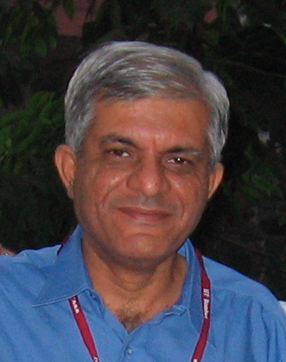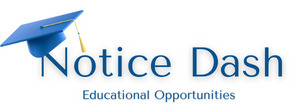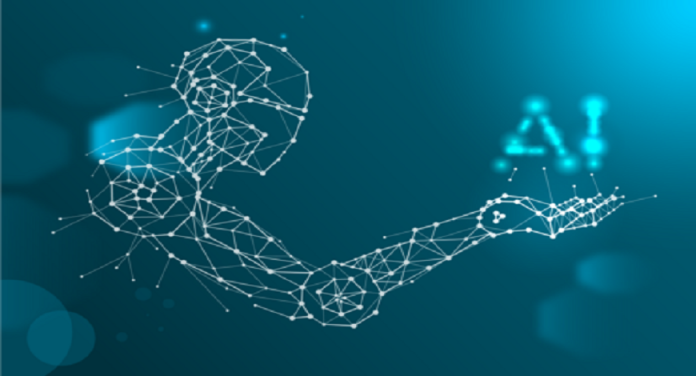For an autonomous agent to behave in an intelligent manner it must be able to solve problems. This means it should be able to arrive at decisions that transform a given situation into a desired or goal situation. The agent should be able to imagine the consequence of its decisions to be able to identify the ones that work. In this first course on AI we study a wide variety of search methods that agents can employ for problem solving. In a follow up course – AI: Knowledge Representation and Reasoning – we will go into the details of how an agent can represent its world and reason with what it knows. These two courses should lay a strong foundation for artificial intelligence, which the student can build upon. A third short course – AI: Constraint Satisfaction Problems – presents a slightly different formalism for problem solving, one in which the search and reasoning processes mentioned above can operate together.
INTENDED AUDIENCE: This is a first course on Artificial Intelligence. While the intended audience is both UG and PG students studying Computer Science, in fact anyone comfortable with talking about algorithms should be able to do the course.
PRE-REQUISITES: Nil
INDUSTRY SUPPORT: Any industry that is involved in development of AI applications. This not only includes software companies (like Microsoft, Google, and Facebook) but also manufacturing companies like Ford and General Electric, and retail companies like Amazon and Flipkart.
Course layout
Week 0 : Introduction: History, Can Machines think?, Turing Test, Winograd Schema Challenge, Language and Thought, Wheels & Gears
Week 1 : Introduction: Philosophy, Mind, Reasoning, Computation, Dartmouth Conference, The Chess Saga, Epiphenomena
Week 2 : State Space Search: Depth First Search, Breadth First Search, Depth First Iterative Deepening
Week 3 : Heuristic Search: Best First Search, Hill Climbing, Solution Space, TSP, Escaping Local Optima, Stochastic Local Search
Week 4 : Population Based Methods: Genetic Algorithms, SAT, TSP, emergent Systems, Ant Colony Optimization
Week 5 : Finding Optimal Paths: Branch & Bound, A*, Admissibility of A*, Informed Heuristic Functions
Week 6 : Space Saving Versions of A*: Weighted A*, IDA*, RBFS, Monotone Condition, Sequence Alignment, DCFS, SMGS, Beam Stack Search
Week 7 : Game Playing: Game Theory, Board Games and Game Trees, Algorithm Minimax, AlphaBeta and SSS*
Week 8 : Automated Planning: Domain Independent Planning, Blocks World, Forward &Backward Search, Goal Stack Planning, Plan Space Planning
Week 9 : Problem Decomposition: Means Ends Analysis, Algorithm Graphplan, Algorithm AO*
Week 10 : Rule Based Expert Systems: Production Systems, Inference Engine, Match-Resolve-Execute, Rete Net
Week 11 : Deduction as Search: Logic, Soundness, Completeness, First Order Logic, Forward Chaining, Backward Chaining
Week 12 : Constraint Processing: CSPs, Consistency Based Diagnosis, Algorithm Backtracking, Arc Consistency, Algorithm Forward Checking
Books and references
| Text Book: | |
| 1. | Deepak Khemani. A First Course in Artificial Intelligence, McGraw Hill Education (India), 2013. |
| Reference Books: | |
| 1. | Stefan Edelkamp and Stefan Schroedl. Heuristic Search: Theory and Applications, Morgan Kaufmann, 2011. |
| 2. | John Haugeland, Artificial Intelligence: The Very Idea, A Bradford Book, The MIT Press, 1985. |
| 3. | Pamela McCorduck, Machines Who Think: A Personal Inquiry into the History and Prospects of Artificial Intelligence, A K Peters/CRC Press; 2 edition, 2004. |
| 4. | Zbigniew Michalewicz and David B. Fogel. How to Solve It: Modern Heuristics. Springer; 2nd edition, 2004. |
| 5. | Judea Pearl. Heuristics: Intelligent Search Strategies for Computer Problem Solving, Addison-Wesley, 1984. |
| 6. | Elaine Rich and Kevin Knight. Artificial Intelligence, Tata McGraw Hill, 1991. |
| 7. | Stuart Russell and Peter Norvig. Artificial Intelligence: A Modern Approach, 3rd Edition, Prentice Hall, 2009. |
| 8. | Eugene Charniak, Drew McDermott. Introduction to Artificial Intelligence, Addison-Wesley, 1985. |
| 9. | Patrick Henry Winston. Artificial Intelligence, Addison-Wesley, 1992. |
Instructor bio

Prof. Deepak Khemani
IIT MadrasDeepak Khemani is Professor at Department of Computer Science and Engineering, IIT Madras. He completed his B.Tech. (1980) in Mechanical Engineering, and M.Tech. (1983) and PhD. (1989) in Computer Science from IIT Bombay, and has been with IIT Madras since then. In between he spent a year at Tata Research Development and Design Centre, Pune and another at the youngest IIT at Mandi. He has had shorter stays at several Computing departments in Europe. Prof Khemani’s long-term goals are to build articulate problem solving systems using AI that can interact with human beings. His research interests include Memory Based Reasoning, Knowledge Representation and Reasoning, Planning and Constraint Satisfaction, Qualitative Reasoning and Natural Language Processing.
Course certificate
The course is free to enroll and learn from. But if you want a certificate, you have to register and write the proctored exam conducted by us in person at any of the designated exam centres.
The exam is optional for a fee of Rs 1000/- (Rupees one thousand only).
Date and Time of Exams: 23 October 2021 Morning session 9am to 12 noon; Afternoon Session 2pm to 5pm.
Registration url: Announcements will be made when the registration form is open for registrations.
The online registration form has to be filled and the certification exam fee needs to be paid. More details will be made available when the exam registration form is published. If there are any changes, it will be mentioned then.
Please check the form for more details on the cities where the exams will be held, the conditions you agree to when you fill the form etc.
CRITERIA TO GET A CERTIFICATE
Average assignment score = 25% of average of best 8 assignments out of the total 12 assignments given in the course.
Exam score = 75% of the proctored certification exam score out of 100
Final score = Average assignment score + Exam score
YOU WILL BE ELIGIBLE FOR A CERTIFICATE ONLY IF AVERAGE ASSIGNMENT SCORE >=10/25 AND EXAM SCORE >= 30/75. If one of the 2 criteria is not met, you will not get the certificate even if the Final score >= 40/100.
Certificate will have your name, photograph and the score in the final exam with the breakup.It will have the logos of NPTEL and IIT Madras .It will be e-verifiable at nptel.ac.in/noc.
Only the e-certificate will be made available. Hard copies will not be dispatched.
Once again, thanks for your interest in our online courses and certification. Happy learning.
– NPTEL team
Course Link is given below:
IIT Madras Launches Free Course on Artificial Intelligence



